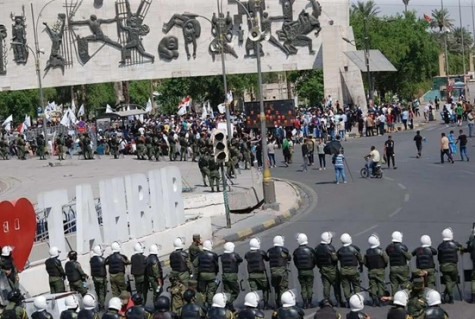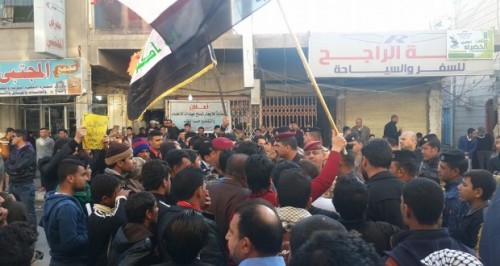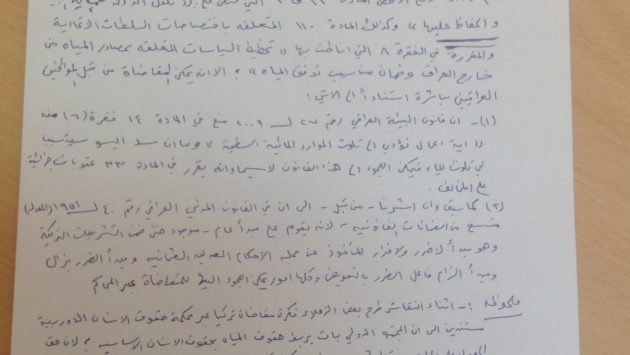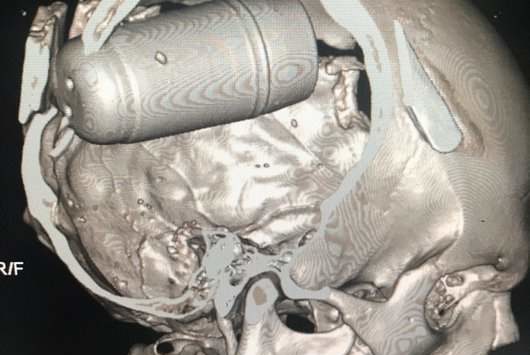GCHR’s 19th Periodic Report on Human Rights Violations in Iraq
This is the nineteenth periodic report issued by the Gulf Centre for Human Rights (GCHR) since January 2020, documenting the human rights situation in Iraq. It covers the recent elections that took place on 10 October 2021, the peaceful protests taking place in the country, harassment of civil society activists, journalists, and the media, as well as exposing the practice of torture against several citizens.
Violations and attacks during Iraqi elections
On 10 October 2021, legislative elections were held in Iraq with the participation of about 41% of the total number of voters, which amounted to 25 million people. During the voting process, some election centers witnessed several violations and attacks against observers and attempts to defraud, entrap and intimidate some voters.
Observers reported that voters at Al-Tamim electoral center in Khan Bani Saad sub-district in Diyala Governorate, eastern Iraq, were pressured to elect a specific candidate.
Also, gunmen attacked and wounded a political activist in the Byara sub-district located within the Hawraman area in the Halabja Governorate in northern Iraq.
On 03 October 2021, armed men affiliated with a political party attacked the house of a citizen who refused to hang an election banner on his house, as one of his protest mechanisms, and he was wounded by a gunshot.
On the day following this incident, 04 October 2021, another group attacked another citizen who also refused to hang an election banner on his workplace, only to then have the building be bombed with a sound grenade.
The Iraqi authorities recorded at least 77 violations in the election process, ranging from attempts to intimidate, entice, threaten and attack technical and administrative staff. These violations occurred in the Governorates of Baghdad, Nineveh, Diyala, Kirkuk, Basra, Anbar, Salah Al-Din, Erbil, Wasit, and Diwaniyah.
The authorities announced that the violators had been referred to the judicial committees that were formed by the Supreme Judicial Council in preparation for taking legal measures against them.
Some of the parties that emerged from the October 2019 protests have achieved positive results. The Emtidad Movement, headed by the former civil society activist and deputy in the new parliament Alaa Al-Rikabi, achieved nine parliamentary seats, including his own.
After the results were announced the next day, a group of political parties and armed groups challenged the election results, and Iraqis fear that these objections will turn into armed clashes between political parties in Iraq.
Political targeting operations
In recent weeks, political targeting of political activists and candidates participating in the elections has increased. Prior to the elections, on 08 October 2021, gunmen opened fire on political activist Sadir Al-Khafaji, a candidate for the Parliament elections, in the Karrada district in the center of the capital, Baghdad, but he was not hurt and the damage was limited to the car he was driving. A security source said in a press statement after the incident that “the bullets hit his wheel and he was able to escape from them,” adding, “The damage was material and there were no casualties.”
On 17 September 2021, unidentified persons in Baghdad burned media pictures of the “I go out to take my right to democracy” movement, one of the movements that emerged from the October 2019 protests. The media pictures carried the goals and slogans of the movement that participated in the recent elections.
On 04 October 2021, political activists Hussain Flaieh and Jaber Heigl were arrested in the city of Diwaniyah, after calling on citizens to boycott the elections. Although they were exercising a natural right protected by the Iraqi constitution, the Iraqi authorities arrested them and did not release them until about 24 hours later.
GCHR sources reported, “The arrest came after Flaieh and Heigl promoted a boycott of the elections, and had it not been for the pressure exerted on the authorities by civil society activists and lawyers, they would not have been released.”
The assassination of civil society activists
Civil society activists in Iraq are still pressuring the authorities to a great extent in order to achieve justice and hold the killers of protesters accountable, but despite these demands, the authorities’ actions are still weak, and do not meet their aspirations to reach accountability and end impunity.
On 30 September 2021, the Iraqi judiciary issued a death sentence against the person convicted of killing the folk poet Jaseb Hattab Al-Heliji. He is the father of human rights lawyer Ali Al-Heliji, who remains kidnapped for over two years.
The accused confessed, according to a statement by the Supreme Judicial Council, to the details of this crime, saying that he killed the victim in Al-Maareth area (Exhibition area) in the center of Al-Amarah. On 12 March 2021, GCHR documented the assassination of Jaseb Al-Heliji. He put all his efforts and raised his voice in protests and various places in order to find his son Ali Al-Heliji, who was kidnapped on 07 October 2019 in the city of Al-Amarah, capital of Maysan Governorate.
On 30 September 2021, a judge survived an assassination attempt when gunmen targeted him in Maysan Governorate. The first judge in the Al-Amarah Investigation Court, Harith Jabbar, was in his car when it was hit by a hail of bullets in the city of Al-Amarah, but the operation did not succeed and Jabbar was unhurt.
On 09 October 2021, the body of the youngest peaceful protester, Haider Mohammed Al-Zamili was found in a river in the city of Diwaniyah, Al-Qadisiyah Governorate capital four days after his disappearance. Al-Zamili, only 16 years old, was one of the most prominent participants in the protests that took place in his governorate. The authorities have not yet released any information about Al-Zamili’s disappearance or death, which is suspected to have been murder.
Exposing torture practices
GCHR has received disturbing reports of the torture of a child by his father, and the torture of a number of detainees in the custody of the Iraqi security forces. These reports revealed the extent of the violations that detainees and prisoners are subjected to in government prisons and detention centers, in addition to the extent to which some children are subjected to domestic violence at the hands of their families.
On 12 April 2021, the wife of Ali Al-Jubouri disappeared. He was arrested two months after her disappearance and falsely accused of her murder after he appeared in a television program in which he confessed to this crime. On 18 September 2021, the wife returned, and he was released three days after her return.
Ongoing targeting of civil society activists and journalists
The targeting of activists and journalists continues, despite the great and many promises made by Al-Kadhimi’s government to protect them and provide a safe environment to express their views, but this is still far from being achieved.
Violence against woman
On 02 October 2021, a young woman who escaped from solitary confinement in prison appeared in a video clip, appealing to Prime Minister Al-Kadhimi for help. She said, “I thought a million times about what to tell to you to save me, because the cheapest thing in Iraq is the lives of women, and after the suffering of three years I managed to escape. I hardly came back to life and I do not want to lose it to be a victim of ignorance, believe me, Prime Minister, I wish I could complete the journey of survival without anyone’s help, but I have to. Please do not disappoint me because I have no breadwinner.” It is not known until now if Prime Minister Al-Kadhimi has provided her with any help or not.
News of peaceful demonstrations and protests
Demonstrations are still continuing across Iraq, albeit intermittently, but they express great popular anger towards what is happening in the country – from the spread of corruption, poor public services, and restrictions on the public freedoms of citizens, as well as the continued protests of professional groups such as engineers and graduates of postgraduate studies, among others.
Recommendations
Once again, GCHR calls on the Iraqi government to take full responsibility to protect all demonstrators, journalists, human rights defenders, and members of civil society. In addition, the authorities must reinforce laws against sexual assault and domestic violence, especially when women and children are most vulnerable during the isolation imposed by the current crisis. GCHR also calls on the Iraqi authorities to identify all perpetrators of kidnappings, torture, and killing of human rights defenders, peaceful demonstrators, and other activists, and bring them to justice. The authorities must fulfill their constitutional obligations not to violate public freedoms, including freedom of peaceful assembly, freedom of expression, and freedom of the press, which can be respected while protecting public health.




